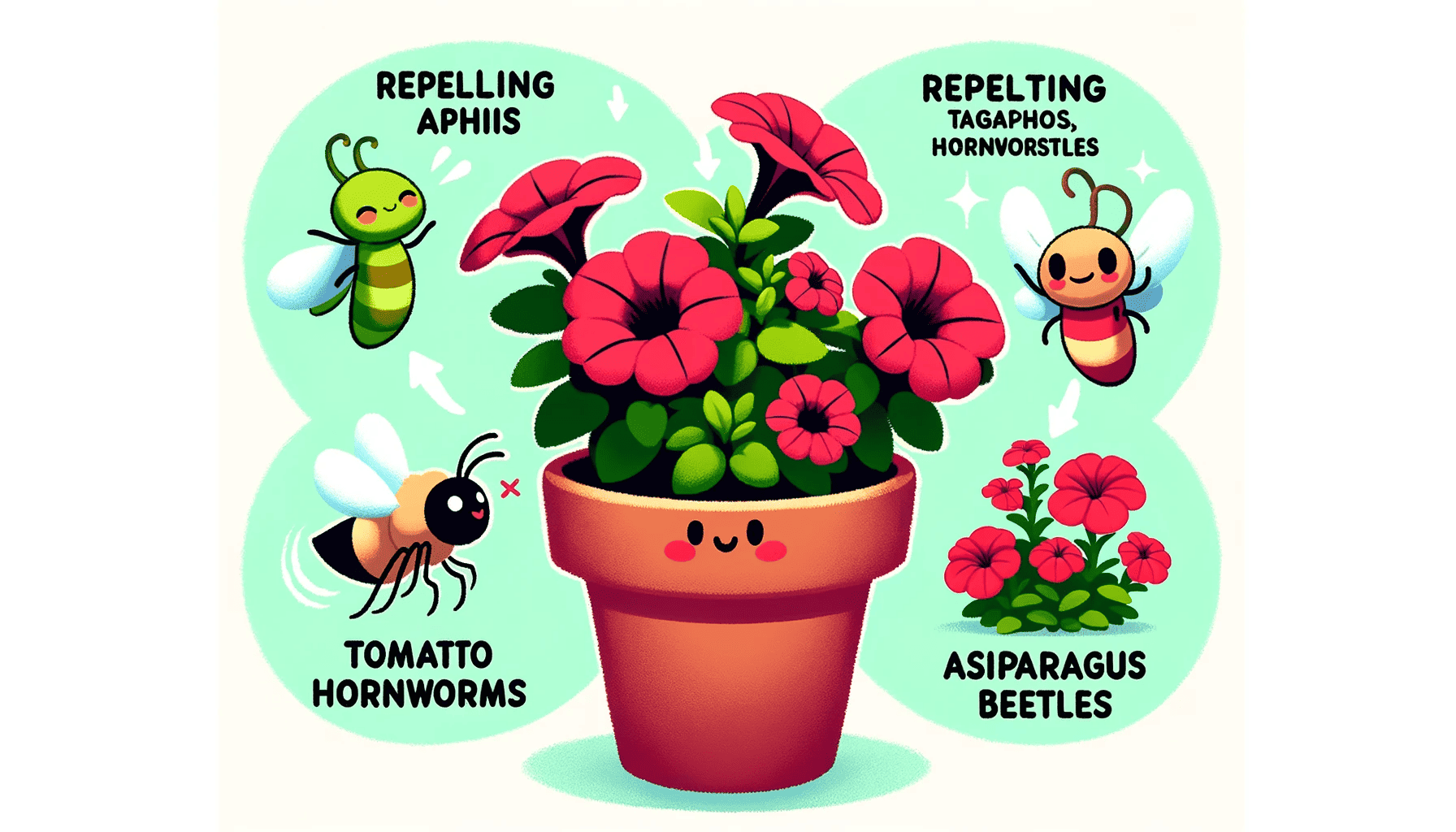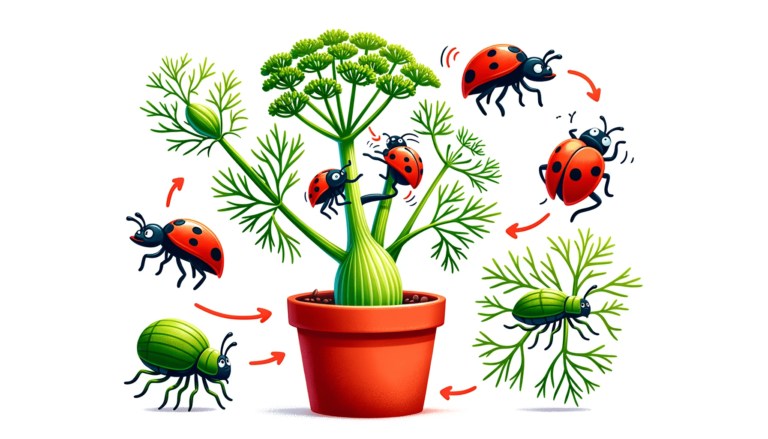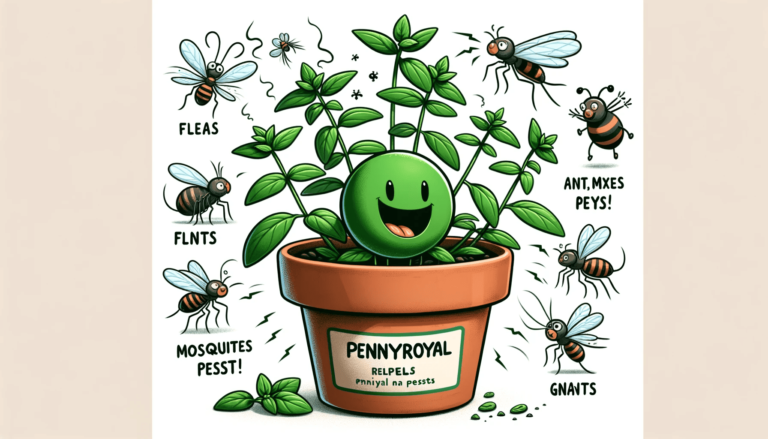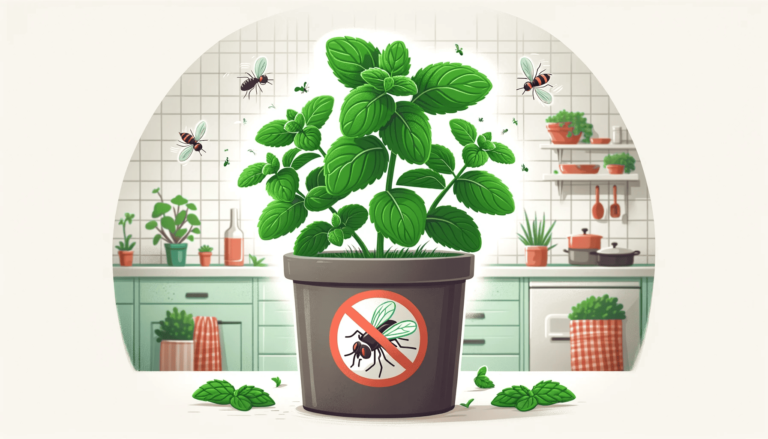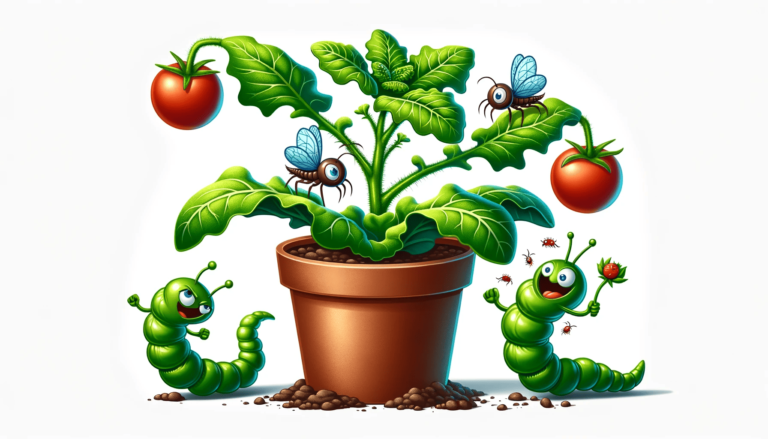Nature’s Pest Repellent: Maximizing Your Garden’s Potential with Petunias
Have you ever thought of petunias as more than just a splash of color in your garden?
These vibrant blooms, known for their stunning appearance, are also a gardener’s ally in the battle against pests.
But how exactly do these cheerful flowers keep pests at bay? Let’s explore the multifaceted roles of petunias.
They produce a strong fragrance similar to licorice that some insects may find unpleasant.
Petunias: The Colorful Shield Against Garden Pests
Petunias: Not Just a Floral Ornament: While petunias are renowned for their vibrant hues, their true value lies in their ability to act as natural defenders against pests like aphids, tomato hornworms, and asparagus beetles.
These flowers are more than just a visual treat; they’re a crucial part of your garden’s defense system.
How Petunias Repel Insects: Petunias are effective in pest control thanks to their ability to produce compounds unpleasant to many insects.
Their unique fragrance and texture act as natural deterrents, making them an integral part of any pest management strategy.
The Science Behind Petunias’ Pest-Repelling Properties
These flowers emit a fragrance and produce compounds that are unwelcoming to pests, thus protecting your garden in a natural, eco-friendly way.
- Enhancing Garden Beauty and Protection with Petunias
- Integration Tips: Besides their beauty, planting petunias among your vegetables can form a protective barrier against pests. Ideal for garden beds and containers, they are a functional addition to any garden.
- The Battle Against Aphids: Petunias to the Rescue
- Why Petunias? Aphids, a common garden pest, find the scent of petunias repelling. By strategically planting these flowers, you can reduce aphid infestations naturally.
- Combating Budworms with Petunias
- Budworm Deterrent: Budworms can be a real issue in gardens, but petunias have shown effectiveness in deterring these pests, thereby protecting your foliage.
- Leaf Miners: Keeping Them at Bay with Petunias
- Preventive Measures: To combat leaf miners, integrating petunias into your garden can be a game-changer, helping to maintain the health and aesthetics of your plants.
- Petunias: A Natural Remedy for Spider Mite Problems
- Spider Mite Control: These tiny pests are deterred by petunias, making these flowers a valuable addition for keeping your garden spider mite-free.
- Thwarting Thrips with the Help of Petunias
- Thrips Repellent: Thrips can damage a variety of plants. By including petunias, you can effectively keep these pests under control.
Growing Petunias for Indoor Pest Control
- Planting and Maintenance: Plant after the last frost and ensure they receive sufficient sunlight. Regular watering and light fertilizing will enhance their pest-repellent qualities.
Not just for outdoor gardens, petunias can also be a functional addition indoors. Grown in pots with well-drained soil and adequate sunlight, they can serve as a natural pest barrier in your home.
Petunias’ Role in a Natural Pest Control Strategy: In your quest for a healthy garden, petunias reduce the need for chemical insecticides, providing a safer, more sustainable approach to pest control.
Pairing Petunias with Other Pest-Repelling Plants
To boost their pest-repelling power, combine petunias with other natural insect deterrents.
This multi-plant approach creates a more effective defense against a variety of insects.
While petunias may not be the best choice for pest control, they can still be a great addition to any garden. If you’re looking for pest-repelling plants, consider planting marigolds, chrysanthemums, or lavender.
For further insights and a variety of plant-based options, check out our guide, “27 Indoor Plants Great for Pest Control“. This resource is packed with information for maintaining a healthy, pest-free environment naturally.
Conclusion
Incorporating petunias into your garden is a smart move. Not only do they add a burst of color, but they also play a vital role in natural pest control.
This dual purpose makes them an invaluable addition to any garden, big or small.
So, the next time you admire your petunias, remember they’re not just there for their looks; they’re hard at work keeping your garden healthy and pest-free.
